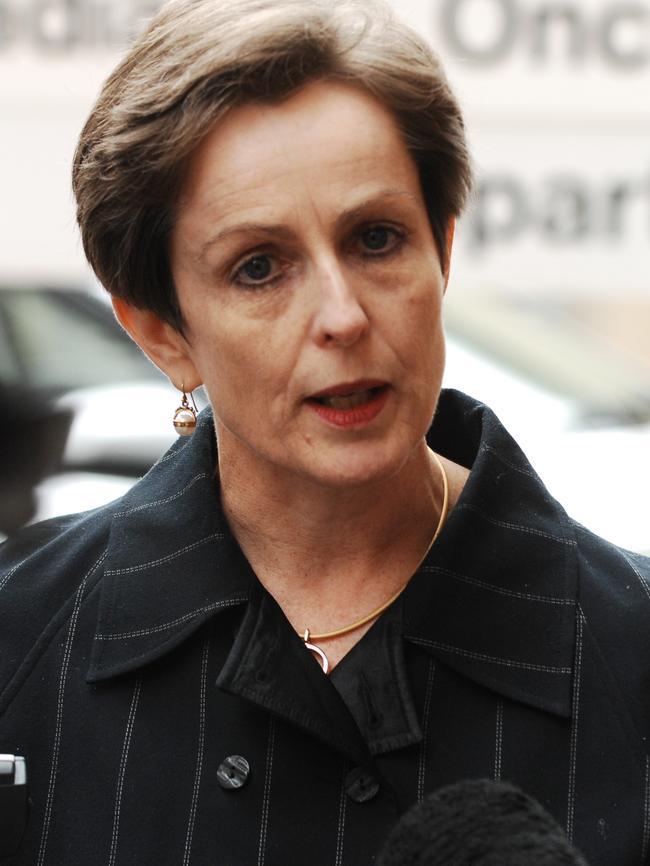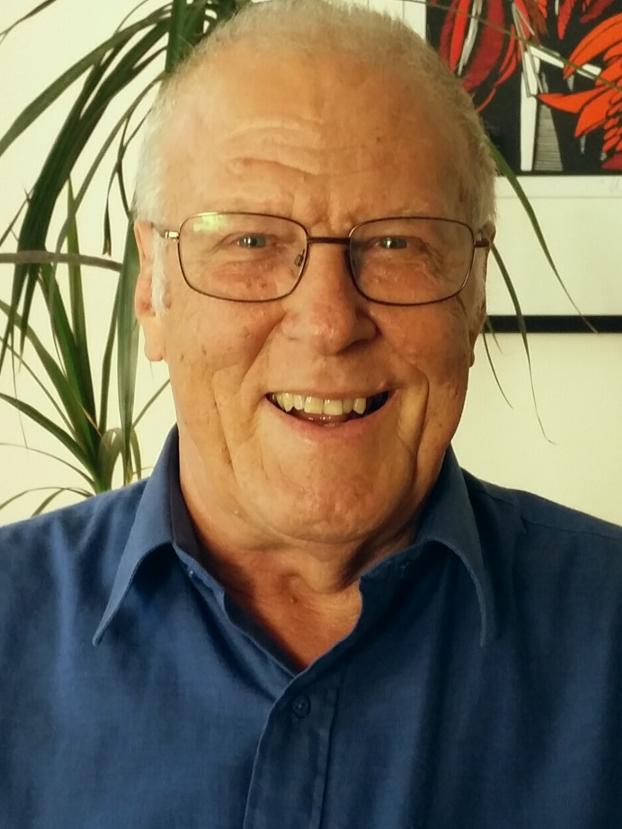Is Transforming Health going to help or hurt South Australia’s hospital system? The for and against
THE State Government’s Transforming Health reforms have divided opinions within the medical profession. Some believe it’s vital, others fear the impact the reforms will have. Here are the cases for — and against.

Opinion
Don't miss out on the headlines from Opinion. Followed categories will be added to My News.
THE State Government’s Transforming Health reforms have divided opinions within the medical profession. Some believe it’s vital, others fear the impact the reforms will have. Here are the cases for — and against.
The case for
Professor Dorothy Keefe, Clinical Ambassador, Transforming Health
SINCE I first trained to become a doctor 30 years ago health care has come a long way, and it continues to change.

Eighteen months ago, I was one of more than 60 doctors, nurses and allied health professionals who looked at evidence from every inch of our health care system — to set standards for our public health system and to measure SA against those standards.
What we found was that there are some things we do very well, but there are also areas where we must do better.
To improve health outcomes, we are changing where we provide key services, and particularly where people can get 24/7 care, so that when people arrive at hospital they get the treatment they need — without delay and without having to be moved unnecessarily.
Many of us instinctively believe hospital is always the best place to be and for a period of treatment and care, this is true. But modern clinical evidence tells us that being in hospital longer than needed is detrimental to your health, increasing infection risks, muscle deconditioning and mental health impacts.
New ways of delivering care are being worked through by hundreds of the smartest and most experienced clinicians in the state. They are sharing with each other what is working, and how to replicate the best models across the system.
This is what Transforming Health is all about.
Since the start of Transforming Health much has been achieved, and we have seen construction begin at Noarlunga, Flinders Medical Centre and Modbury, with plans well underway at a number of our other sites. New models of care that will improve quality outcomes are ready to roll out.
Of course, there are a small number of detractors who just want everything to stay as it is, and where it is, despite all the contemporary clinical evidence. That is not sustainable.
While constructive, sensible debate is vital to ensure we have the best health system possible, the constant scaremongering by certain critics, without the provision of any alternative, sustainable, safe and quality-centred solution is irresponsible and must stop.
The alternative to Transforming Health is a future of longer hospital stays, inequitable access to services and, overall, poorer outcomes for patients. That’s a future my colleagues and I are determined to prevent.
The case against
Warren Jones, Emeritus Professor at Flinders University.
THE Government purchased Transforming Health (TH) as a pre-packaged formula, designed for cost restraint in hospital systems in densely populated, circumscribed cities. It is quite unsuitable to a city like Adelaide with a widespread metropolitan area, and an ageing population.

The TH model involves patients being treated for specified conditions in designated but geographically dispersed hospital facilities. This fragmentation of treatment modalities will lead to confusion and hardship for many. Frail elderly patients are likely to have to travel long distances
to find an appropriate hospital for joint replacements and other types of major surgery.
Along with the proposed reduction in fully functional Emergency Departments (EDs) from six to three, these changes will impose an unacceptable burden of illness assessment and diagnosis on patients, carers, relatives and ambos. It will lead to long and inconvenient journeys for many people and a massive increase in ambulance activity.
TH has been characterised by poor consultation and communication with health professionals, makeshift policies, incompetent planning and confusing and unsafe implementation schedules. There has been universal condemnation of the proposed downgrading of Modbury hospital by senior medical specialists, their professional colleges and their workplace advocates, the AMA and SASMOA.
The proposal to close the Repat involves the reduplication of modern facilities for rehabilitation and psychogeriatrics at FMC, and the removal of the hospice and PTSD services to inappropriate locations. The fate of the majority of inpatients, staff, facilities and services is in limbo. The Government has no realistic plan for the 170,000 ambulatory and outpatient visits each year; there is no room for these patients at FMC.
The TH manifesto stresses the need, when Hampstead Rehabilitation Centre (HRC) is disbanded, to co-locate rehabilitation facilities in hospitals with acute specialised medical support services. However, in two of the three designated hospitals — the QEH and Modbury — these acute services will be withdrawn as part of their downgrading.
The rehab services planned for the QEH are inadequate compared with those at HRC. In order to accommodate them at the QEH, modern facilities in geriatric medicine, respiratory medicine and palliative care will be decimated. As well, the ED and intensive care unit will be degraded, and severely ill patients, including those with heart attacks and strokes, will no longer be admitted.
The TH proposals for our hospital system have been poorly communicated and incompetently planned. They will create problems for which there are no ready solutions. Further attempts to implement these disruptive and unsafe changes must be postponed until the Government can guarantee acceptable outcomes for patients and staff alike.
The Government
Jack Snelling, Health Minister
NOT a day goes by where I’m not asked the number one reason why South Australia needs such urgent health reform.
There is no number one reason ... there are at least 500 of them.
That’s the number of South Australians who unnecessarily die in our public health system each year, who — despite the best efforts of our dedicated medical teams — never make it home to their loved ones.
As Health Minister, I will not morally or professionally stand by and continue to let this happen.
South Australia spends more money on the public health system than any other Australian state. Our public hospitals have more beds and we employ more doctors and nurses yet we continue to rank among the worst public health performers.
This isn’t a reflection on our dedicated doctors, nurses or allied health professionals, rather it shows the failures of the structure to support their vital work.
With the direction of leading clinicians we are transforming the public health system.
South Australians are returning to good health quicker and going home earlier and that is just the beginning.
The new RAH will become home to a dedicated cardio ward where suspected heart attack patients will bypass emergency for immediate admission and specialist care.
Stroke patients will have access to a round the clock dedicated facility and those needing non-urgent elective surgery can look forward to shorter wait lists.
Most importantly, 500 mums, dads, husbands, wives, daughters and sons will come home from hospital in good health.
That is why these urgent changes are needed. You deserve better.
The Medical Association
Dr Janice Fletcher, President, AMA (SA)
It is clear we have a system under significant pressure, and federal funding cuts are going to make things worse.
It has set the stage for our State Government’s ambitious ‘Transforming Health’ project.
While many highly dedicated and skilled clinicians have engaged in the process, there is still much confusion about what the future holds.
Recent media reports surrounding changes being implemented at Modbury Hospital and
the use of ambulance services to transport patients between hospitals are examples.
The AMA (SA) has spoken with the Minister of our concern about introducing such a large number of changes and the system’s capacity to cope. The Minister is unwilling to reduce the pace of the change due to the interdependencies of each part on the other.
Aside from Transforming Health, we have the new RAH, the rollout of the EPAS electronic health record system, closure of the Repat and many other projects in the health portfolio.
Under this government, we have seen a ‘once-in-a-lifetime’3 Generational Health Review; the SA Health Care Plan 2007-2016; followed by the even more unpopular Country Health Care Plan; and now Transforming Health
By the next state election, if we do not have an improved health system, it won’t be for want of plans.
The Opposition
Stephen Wade, Opposition Health Spokesman
Transforming Health is bankrupt of credibility.
After twelve months of spin, Labor has failed to convince anyone that it can improve health outcomes by closing the Repatriation General Hospital and downgrading Modbury Hospital, The Queen Elizabeth Hospital and Noarlunga Hospital.
It is a budget savings plan.
Labor says its cuts are “clinician-led” but frontline clinicians have been locked out of decision-making and are in open revolt over the risk to patient safety.
Labor says its cuts are informed by “community consultation” but the community has been denied real information and meaningful engagement.
A Marshall Liberal Government will act decisively to restore the trust and collaboration that is vital to sustainable, broadbased health reform.
Our first step will be to decentralise power to local boards and genuinely engage clinicians and the community.
The Doctors’ Union
Dr David Pope, SA Salaried Medical Officers Association President
The message from frontline public hospital doctors is that the State Government’s Transforming
Health changes will not deliver “Best Care, First Time, Every Time.”
Public hospital care involves many interconnected, specialised parts. If any part is lost,
patient outcomes are threatened. Transforming Health will dangerously fragment patient
care by stripping services out of our hospitals.
Complex patient management will only be possible at our largest hospital.
Changes are not “Clinician-led” as was promised and is needed. The State Government has been
driving ill-informed changes and is dismissive of patient safety concerns and other problems
raised by doctors.
Doctors make a binding promise to uphold the best interests of patients. Expect doctors to
do everything possible to protect the services needed in South Australia and prevent the
destruction that takes decades to rebuild.


